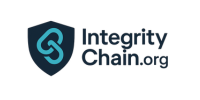Germany: A Step Forward with the Hinweisgeberschutzgesetz

Germany long lagged behind its European neighbors when it came to whistleblower protection. That changed in 2023, when the country passed the Hinweisgeberschutzgesetz (Whistleblower Protection Act), finally aligning its national law with the EU Whistleblower Directive (2019/1937). While the law doesn’t yet include monetary rewards like the U.S. or South Korea, it provides much-needed legal protections to encourage disclosures of wrongdoing. This post explores what’s new, what’s missing, and how Germany’s approach compares internationally.
The Legal Framework
Hinweisgeberschutzgesetz (Whistleblower Protection Act) – Enacted July 2023
Key Features:
- Applies to companies with more than 50 employees and all public sector institutions.
- Whistleblowers can report:
- Criminal offences
- Administrative violations
- Breaches of EU law (including environmental, consumer, and data protection)
- Allows internal reporting through company-established hotlines or systems.
- Allows external reporting to designated government bodies, such as the Federal Office of Justice.
- Anonymous reporting is encouraged but not required by law.
- Prohibits retaliation and mandates reinstatement and compensation in case of unjust dismissal.
Why It Matters
Germany had previously relied on patchy protections scattered across labor laws and case-specific court rulings. Before 2023:
- Whistleblowers were often punished for breach of loyalty or employment contracts.
- The European Court of Human Rights had ruled against Germany in the Heinisch v. Germany (2011) case, where a whistleblowing nurse was unfairly dismissed.
The new law creates legal certainty and clearer processes for both individuals and organizations.
Landmark Reference: Heinisch v. Germany (ECtHR, 2011)
Background:
Brigitte Heinisch, a nurse at a Berlin elderly care home, raised the alarm over patient neglect and inadequate staffing. After being ignored internally, she took her concerns to prosecutors and was subsequently fired.
Legal Outcome:
- The European Court of Human Rights ruled in 2011 that her dismissal violated Article 10 of the European Convention on Human Rights (freedom of expression).
- This case helped lay the groundwork for stronger whistleblower protections in German and EU law.
Impact:
Though not rewarded financially, Heinisch’s case became a legal milestone and moral victory for whistleblowers across Europe.
Strengths of the German Law
- Covers Both Public and Private Sectors
- Legal Right to Report Internally or Externally
- Ban on Retaliation and Right to Damages
- Protection for Job Applicants, Interns, and Former Employees
- Alignment with EU-wide standards
What’s Still Missing
- No Financial Incentives
Unlike the U.S. or South Korea, German law does not offer monetary rewards to whistleblowers—even if their report saves public money or prevents disaster. - Limited Anonymous Protection
While anonymous reports are accepted, there’s no obligation for companies to enable anonymous reporting channels. - Public Awareness
Whistleblowing still carries a social stigma in Germany. Cultural change is needed for reporting wrongdoing to be seen as civic duty, not betrayal.
Comparison with EU Peers
- France and Ireland have already passed similar laws under the EU directive.
- Italy offers whistleblower hotlines and some regional financial incentives.
- Germany’s law is considered a solid compliance framework, but less bold than U.S. or South Korean models.
Conclusion
Germany’s new Hinweisgeberschutzgesetz marks an overdue but welcome shift in favor of whistleblower protections. Though still missing financial rewards, it offers robust legal safeguards for those who report wrongdoing. Whether this will lead to a more transparent culture depends on how the law is implemented and embraced across corporate Germany.



